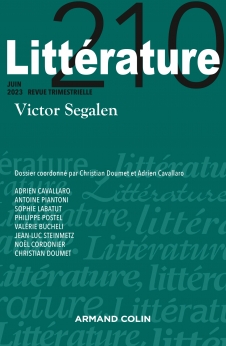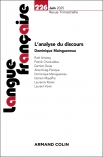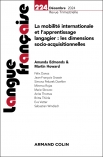
Littérature Nº210 (2/2023)
Pour acheter ce numéro, contactez-nous
Recevez les numéros de l'année en cours et accédez à l'intégralité des articles en ligne.
L’article examine le discours sur le roman inhérent à René Leys. Le personnage « Segalen », incapable d’écrire le « livre » qu’il a entrepris, se met à l’école de René Leys qui lui apprend comment écrire un « roman » ; toutefois le maître ès romans (René Leys) et le disciple (« Segalen ») sont amenés à rompre. En dépit de son caractère déceptif, cette relation d’apprentissage révèle plusieurs positions théoriques à propos de la fiction : un processus d’identification du lecteur (figuré par le personnage « Segalen ») avec les personnages du roman, la nécessité pour le lecteur et l’auteur de collaborer afin de construire ensemble le roman, et diverses positions adoptées par le personnage “Segalen” illustrant l’adhésion plus ou moins grande à la fiction, de la crédulité feinte au démenti radical.
The article examines the discourse upon the novel inherent in René Leys. The character « Segalen », unable to write the « book » he has undertaken, puts himself under the guidance of René Leys who teaches him how to write a novel ; however the master of novels (René Leys) and the disciple (« Segalen ») have to part. In spite of its illusory nature this apprentice relation unveils several theoretical positions about fiction : an identification process of the reader (figured by the character « Segalen ») with the characters of the novel, the need for the author and the reader to collaborate in order to build the novel together, and diverse positions adopted by the character « Segalen » illustrating the more or less important adherence to fiction, from affected credulity to radical denial.

